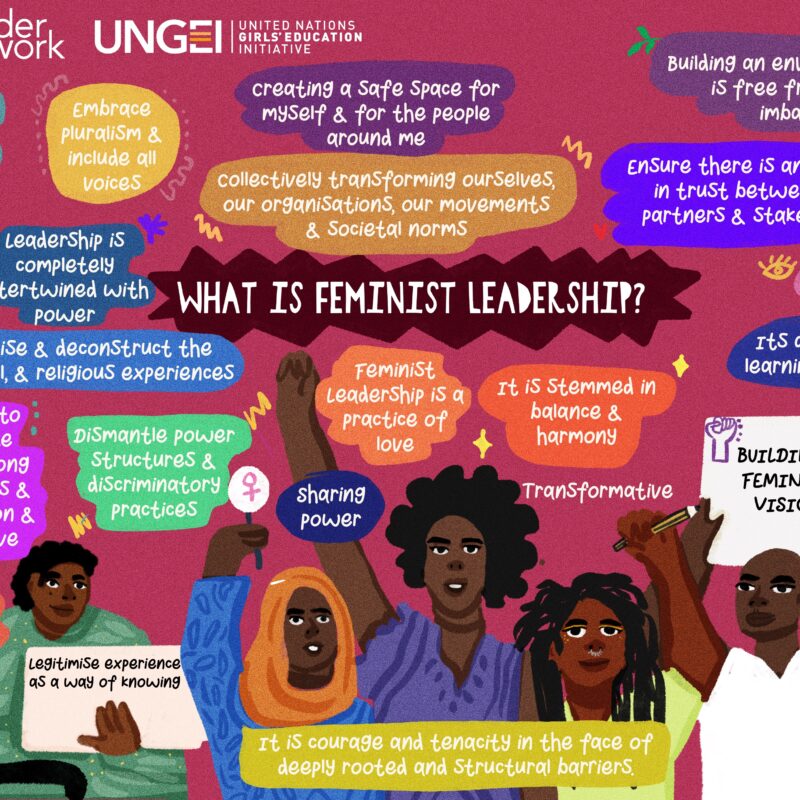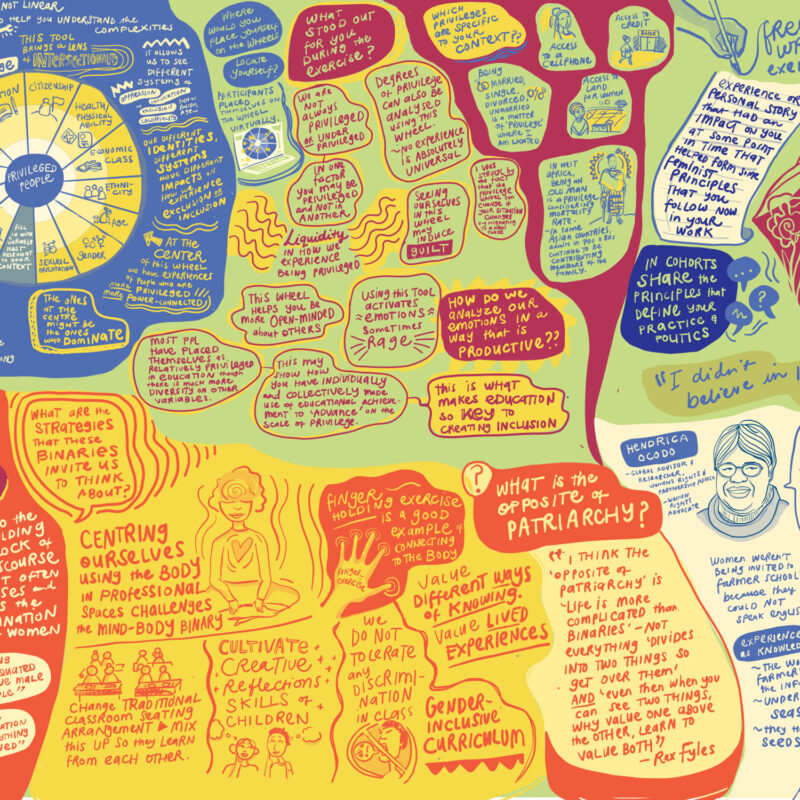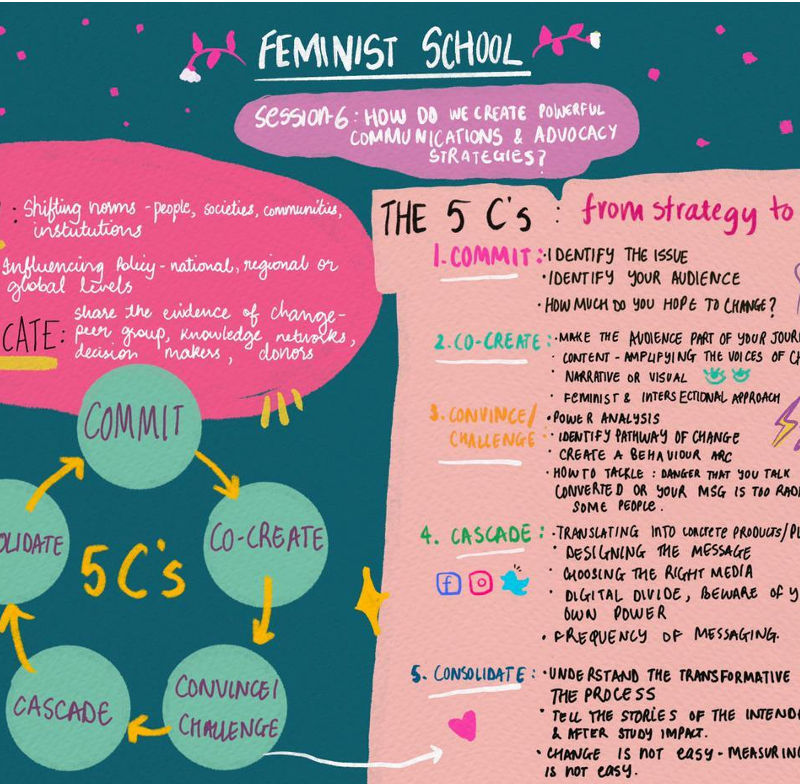
Virtual Spaces for Knowledge Sharing
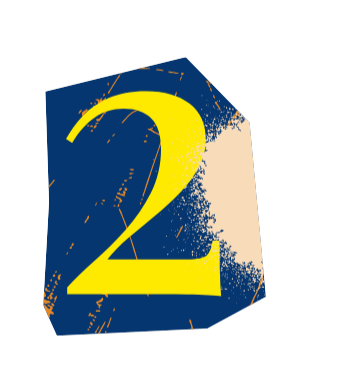
Global Learning Platforms
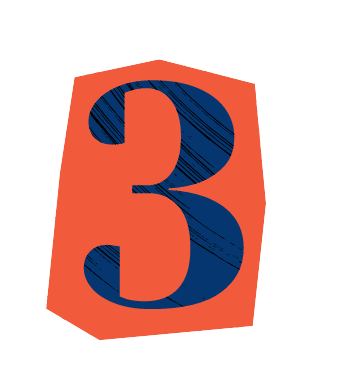
Bridging Silos
I have learned so much about how important it is to remain grounded as an individual so that when I bring myself to a group or to a movement like feminism, I understand my purpose and I am aware of my politics and even my privileges as well. I will apply that awareness to my work and I will also always remember the “head, heart, hands and feet” concept and I’ve done some of my own personal learning on it to take it back to spaces I organise.Feminist School participant
Feminist School allows you to develop the ability to think critically: think critically about your activism through a feminist lens; think critically about the education system you seek to transform and think critically about feminist ways of being and doing and how those can become embodied in our ways of being and doing as feminist activists in the education landscape.Feminist School facilitator
Our Approach to Learning
Feminist School does not offer traditional training. Instead, it creates a space for experimentation with feminist ideas, tools, and resources. Utilising feminist pedagogy, Feminist School supports participants in challenging their thinking, building knowledge, and developing skills for both personal and professional growth.
At Feminist School, each edition typically includes six to eight online sessions over several weeks or months, with 20 to 40 participants from various countries and organisations. These sessions last two to three hours, with reflective assignments in between.
Here are some central pillars of our learning approach:

Feminist Pedagogy
>> The use of analytical, dialogic, and somatic tools to address real-life challenges is encouraged.
>> Individual and collective action, experimentation, and reflection to disrupt norms and systems of inequality are nurtured throughout the sessions.

Interactive and Holistic Learning
>> Learning is addressed on three fronts: conceptually, emotionally, and through practical action.
>> Sessions are facilitated by a diverse, intergenerational team skilled in fostering intimate online conversations.

Curriculum and Themes
>> Themes explored include feminist leadership, conflict and power dynamics, intersectionality, communications and advocacy, self- and collective care.
>> Reflective thinking is encouraged to promote systems thinking and drive transformative aspirations that challenge patriarchal binaries.
Previous Editions
In April 2021, a cohort of 26 young feminist activists working in the gender justice and education space joined us for the pilot edition of Feminist School.
In March 2023, UNGEI and Gender at Work showcased a sample of the Feminist School’s magic on two occasions at the 67th Commission on the Status of Women, in New York City, USA.
Between April and May 2023, the second edition of Feminist School engaged a passionate group of 40 people from different civil society organisations engaged in a variety of initiatives to promote gender equality and social transformation.
Between April 11 and May 14, 2024, a new Feminist School with an education civil society organisations edition was rolled out. This time, a vibrant cohort of 31 participants from 6 East Africa-based organisations joined us.
Between September 12 and November 6, 2024, Feminist School brought together an online cohort of 20 adolescent girls and young women activists (AGYWA) from four countries – Zambia, Zimbabwe, Malawi and South Africa. The curriculum and format of the sessions were adapted to the particular needs and opportunities of AGYWA, including innovations such as trauma-informed support and English-Sign Language translation.
Graphic Recordings

Interested?
If you and your organisation are interested in participating, co-creating, supporting or exploring how Feminist School’s gender transformative vision and feminist methodologies can contribute to your mission, let us know!
A collaboration between




